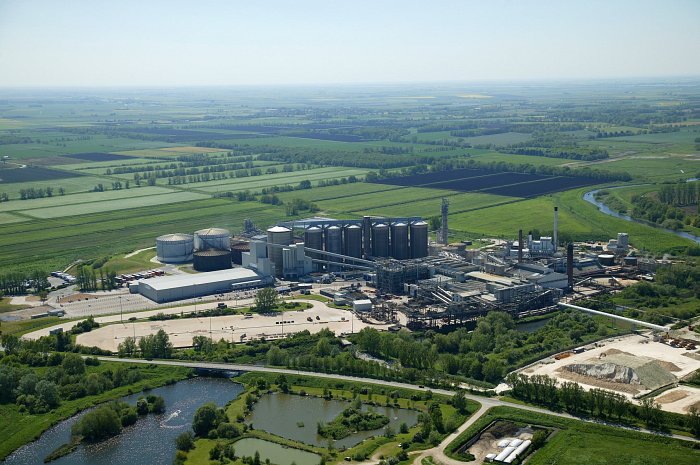
The CO2 production facility at British Sugar’s Norfolk factory has now restarted following the signing of a long-term agreement with Air Liquide.
The Wissington plant is now producing biogenic CO2 to various sectors in the UK and abroad, the processor confirmed.
One of the largest sources of biogenic CO2 in the UK, it is located next to Wissington’s bioethanol facility, ensuring no extra transport miles are needed to get the raw product to the facility.
The plant is strategically positioned to derive biogenic CO2 as a by-product of the bioethanol process.
Once the sugar has been extracted from locally grown sugar beet, the residual juice is used by the bioethanol plant to produce a low-carbon transportation fuel (E10).
It is during this fermentation process of the residual juice that the raw CO2 is produced.
Under the new agreement, Air Liquide will purify and liquify the raw CO2, producing around 20,000 tonnes annually, going to customers across various industries, including food and beverage, chemicals, and pharmaceuticals.
This CO2 would otherwise be released into the atmosphere, with British Sugar calling it an important step to reduce carbon emissions from its end-to-end site operations even further.
This reduction amounts to approximately 5% of Wissington’s scope 1 total emissions, according to the processor.
Keith Packer, managing director of British Sugar said: “We are delighted to reopen the CO2 facility at our Wissington site in conjunction with Air Liquide.
"At British Sugar we continue to look at ways to reduce any waste from the sugar production process as much as we possibly can, and this is yet another initiative to be able to deliver on this.”
Elliott Fisher, British Sugar’s site general manager at Wissington added: “As a site we are always looking at ways to use every part of the sugar beet that is delivered to our factory.
"We generate large amounts of CO2 through the fermentation process when producing bioethanol so to be able to reuse this on site, to deliver a reliable supply of biogenic CO2 is important in helping to increase the country’s domestic supply.”
